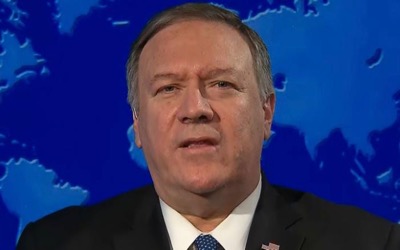
According to the Western media, General Qasem Soleimani, commander of the Iranian Revolutionary Guards’ élite Al-Quods force, was preparing an operation intended to win back Iraqi public opinion. [1]
In the midst of the Shiite community’s escalating protests against Iranian influence over the Iraqi political class, attacks have been allegedly carried out against US interests, triggering a US response against Iraqi protesters, which in turn ignited Iraqi nationalism to the detriment of the ongoing revolt.
It was, purportedly, in order to frustrate this plot that, on 2 January 2020, the United States assassinated Qasem Soleimani and his loyal supporter Abu Mehdi al-Mouhandis. [2] According to the US, Iran had been forewarned through a satement delivered by US Defense Secretary Mark Esper. [3]
This narrative, even if logical, is hardly credible. The strategy attributed to General Soleimani is in no way consistent with his well-known modus operandi, nor with that of the Iranian secret services. Quite the contrary, it is strangely reminiscent of US Ambassador John Negroponte’s rationale: foment an Iraqi civil war as a means of stifling the Iraqi Resistance. Other interpretations of the events are of course possible, starting with a US desire to seize on the mutual paralysis of the Iranian government forces and the Revolutionary Guards.
[1] “Inside the plot by Iran’s Soleimani to attack U.S. forces in Iraq”, Reuters, Michael Georgy and Brian Thevenot, January 4, 2020.
[2] "Whole of Middle East and US on high alert, Voltaire Network, 3 January 2010.
[3] “Mark Esper on Iran in Iraq”, by Mark T. Esper, Voltaire Network, 2 January 2020.












Stay In Touch
Follow us on social networks
Subscribe to weekly newsletter